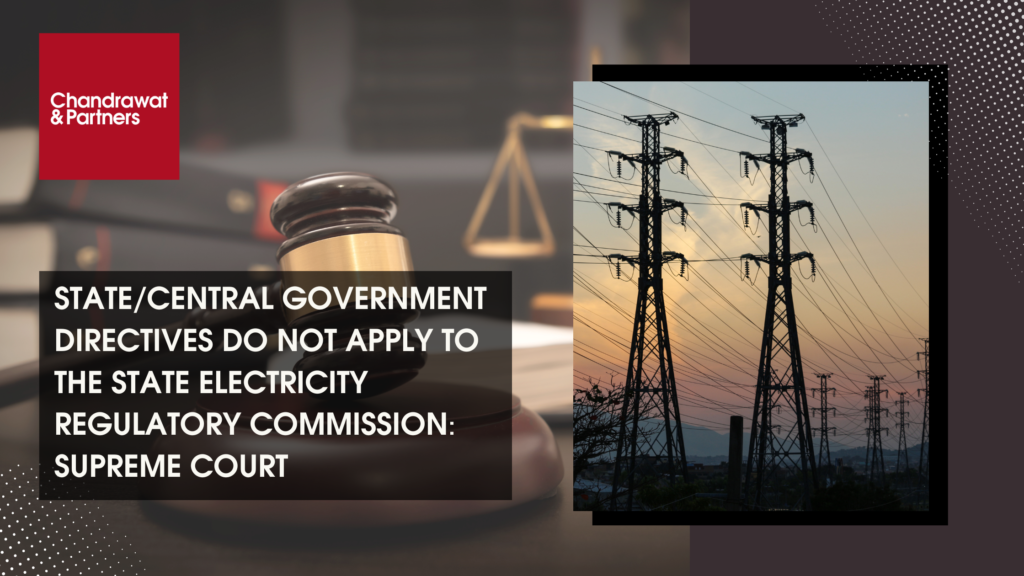Home > Recent Judgements > State/Central Government Directives Do Not Apply To The State Electricity Regulatory Commission: Supreme Court
Oct 15, 2024

BACKGROUND
In the case between Kerala State Electricity Board Ltd Versus Jhabua Power Limited and Others, the case involves the Kerala State Electricity Regulatory Commission (KSERC), which was directed by the Kerala Government under Section 108 of the Electricity Act, 2003, to reconsider the approval of Power Supply Agreements (PSAs) filed by the Kerala State Electricity Board Limited (KSEBL). The State Government contended that power procurement costs would go higher if the PSAs are not approved, which would adversely affect the consumers. KSERC’s position at the beginning was that it will not take over KSEBL’s review petition before it because the government’s policy directive source of applicants KSEBL directs them.
This attracted the criticism of the Appellate Tribunal for Electricity (APTEL) who held that KSERC is not provided with such instruction, neither has it been placed under engagement to such instructions and therefore declared that KSERC had a duty to act autonomously. In relation to the KSEBL filing the petition in the Supreme Court, the position remained that the APTEL decision was effective, explaining that a state regulatory commission is “directed” by the Government but not “restrained.” This position was however to last as the Supreme Court in relation to this case restored the original appeal to APTEL on some grounds and directed them to review all the facts presented in the matter.
ISSUE
- Whether the Kerala State Electricity Regulatory Commission (KSERC), which has quasi-judicial powers?
- Whether the language of Section 108, which states that the State Commission shall be “guided” by the policy directions of the government?
- Whether the state government’s directive, issued on the grounds of public interest to avoid higher power procurement costs and a potential power crisis, could override the independent adjudicatory function of KSERC in approving the PSAs?
JUDGEMENT
This led APTEL to consider this appeal, ruling that the Supreme Court where the last resort upholding APTEL’s Upheld decision came in whereby the direction issued by the Kerala state government in Section 108 in relation to the KSERC was viewed from the perspective that the laws of the land do not entrench upon the freedom in terms of performing managerial or quasi-judicial functions. The Supreme Court held that the state commission must be ‘guided’ by the government in policy matters but the government cannot constrain how the commission exercises its quasi-judicial powers. As a result, the action of the appellant of the KSERC sanctioning the Power Supply Agreement PSA was nullified on account of state government direction. The activity which the Supreme Court untied is the appeal from the KSERC order against APTEL although APTEL’s stand was that the appeal should be bounded to matters which APTEL had not addressed before.
OBSERVATION
The Supreme Court supported the decision of the Appellate Tribunal for Electricity (APTEL), which obliged the KSERC to comply with Section 108 of the Electricity Act, 2003, which, in turn, allows the State Government to force policy matters on the commissions. Submission of government directions may be quite permissible especially in policy matters but KSERC cannot be instructed on how to implement its quasi-judicial powers. The Court restored the original appeal that APTEL has reversed that of KSERC’s sanctioning of the Power Supply Agreements (PSAs). APTEL reiterated that matters which have already been disposed of by it should not be the subject of further proceedings.
For more information or queries, please email us at
enquiries@chandrawatpartners.com




